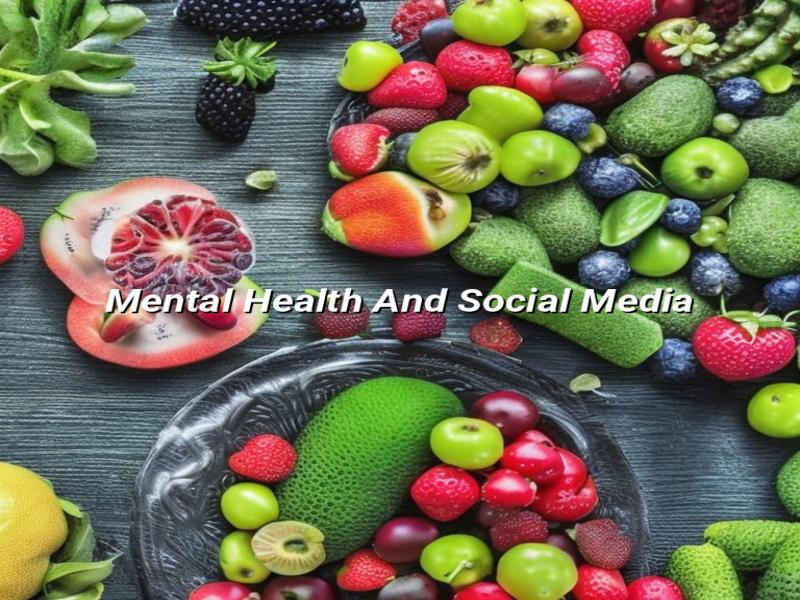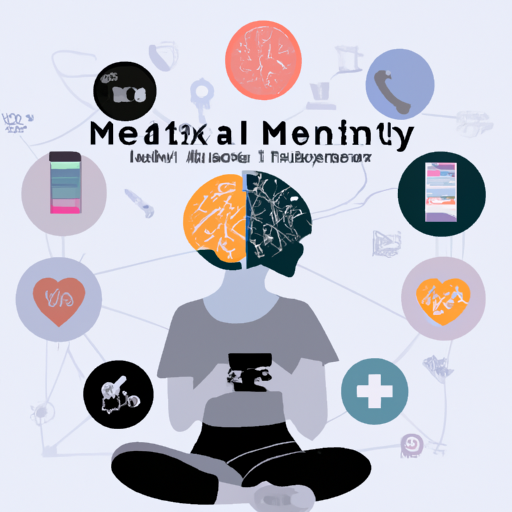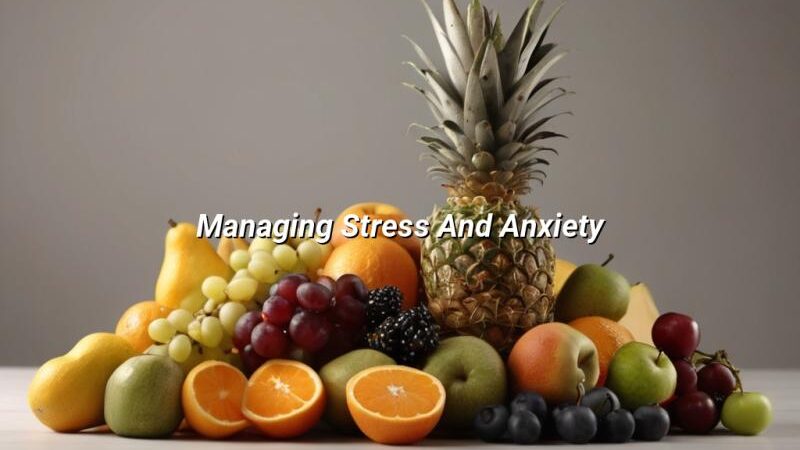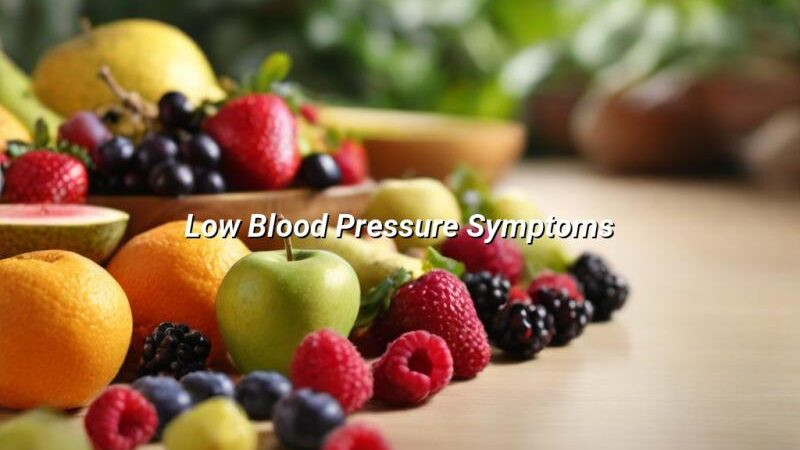Mental Health And Social Media

The Impact of Social Media on Mental Health: A Comprehensive Look
Welcome to our comprehensive look at the impact of social media on mental health. We’ll be exploring the potential risks and benefits of using social media, as well as offering some tips on how to use it in a healthy way.
Social media has become an integral part of our lives. We use it to stay connected with friends and family, to share our thoughts and feelings, and to stay informed about the world around us. But it can also have a negative impact on our mental health.
Studies have shown that excessive use of social media can lead to feelings of loneliness, depression, and anxiety. It can also lead to a decrease in self-esteem and an increase in body image issues.
On the other hand, social media can also be a great tool for staying connected and finding support. It can be a great way to stay informed about current events and to find resources for mental health issues.
So how can we use social media in a healthy way? Here are some tips:
• Limit your time on social media. Set a timer and stick to it.
• Take breaks from social media. Take a day or two off each week to unplug and recharge.
• Be mindful of what you post. Avoid posting negative or inflammatory content.
• Follow accounts that make you feel good. Follow accounts that post positive and uplifting content.
• Reach out for help if you need it. If you’re feeling overwhelmed or struggling with mental health issues, reach out to a friend or professional for help.
Social media can be a great tool for staying connected and informed, but it’s important to use it in a healthy way. We hope this comprehensive look at the impact of social media on mental health has been helpful.
How to Use Social Media to Promote Mental Health Awareness
Mental health is an important topic that affects us all. Social media can be a powerful tool to help spread awareness and understanding of mental health issues. Here are some tips on how to use social media to promote mental health awareness:
1. Share Mental Health Resources: Share helpful resources such as articles, videos, and podcasts that provide information about mental health. This can help to educate people about mental health and provide them with resources to seek help if needed.
2. Talk Openly About Mental Health: Use social media to talk openly about mental health. Share your own experiences and stories to help break down the stigma and encourage others to do the same.
3. Follow Mental Health Organizations: Follow mental health organizations on social media to stay up to date on the latest news and resources. This can help you stay informed and spread awareness.
4. Use Hashtags: Use hashtags such as #MentalHealthAwareness and #EndTheStigma to join conversations and spread awareness.
5. Support Others: Show your support for those who are struggling with mental health issues. Offer words of encouragement and let them know that they are not alone.
By using social media to promote mental health awareness, we can help to create a more understanding and supportive environment for those who are struggling.
The Pros and Cons of Social Media for Mental Health
Social media has become an integral part of our lives, and it can be a great tool for mental health. But it can also be a source of stress and anxiety. Here are some of the pros and cons of using social media for mental health.
Pros
1. Connectivity: Social media can be a great way to stay connected with friends and family, even when you’re far apart. It can also be a great way to meet new people and build relationships.
2. Support: Social media can be a great source of support. You can find people who are going through similar experiences and can offer advice and support.
3. Awareness: Social media can be a great way to raise awareness about mental health issues. It can help to reduce the stigma associated with mental health issues and encourage people to seek help.
Cons
1. Comparison: Social media can be a source of comparison and envy. It can be hard to avoid comparing yourself to others and feeling inadequate.
2. Stress: Social media can be a source of stress. It can be hard to keep up with the constant stream of information and it can be overwhelming.
3. Bullying: Social media can be a breeding ground for bullying and harassment. It can be hard to avoid negative comments and criticism.
Overall, social media can be a great tool for mental health, but it can also be a source of stress and anxiety. It’s important to be aware of the potential risks and to take steps to protect your mental health.
The Role of Social Media in Mental Health Treatment
Social media has become an integral part of our lives, and it’s no surprise that it’s also playing a role in mental health treatment. While it’s important to remember that social media can’t replace traditional therapy, it can be a powerful tool for those seeking help.
For starters, social media can be a great way to connect with others who are going through similar experiences. Whether it’s a support group on Facebook or a hashtag on Twitter, it’s easy to find people who understand what you’re going through and can offer advice and support. This can be especially helpful for those who don’t have access to traditional therapy or who feel uncomfortable talking about their mental health in person.
Social media can also be a great way to find resources and information about mental health. There are countless blogs, websites, and videos dedicated to mental health topics, and it’s easy to find reliable information about treatments, medications, and more.
Finally, social media can be a great way to practice self-care. Whether it’s taking a break from the news or scrolling through positive affirmations, there are plenty of ways to use social media to take care of your mental health.
At the end of the day, it’s important to remember that social media can’t replace traditional therapy. But it can be a great tool for those seeking help and support. So if you’re looking for a way to take care of your mental health, don’t forget to check out the resources available on social media.
How to Manage Social Media Use to Improve Mental Health
Social media can be a great way to stay connected with friends and family, but it can also be a source of stress and anxiety. If you’re feeling overwhelmed by your social media use, there are some simple steps you can take to improve your mental health.
1. Set boundaries. It’s important to set limits on how much time you spend on social media. Try to limit yourself to a certain amount of time each day, and stick to it. This will help you stay focused on other activities and reduce the amount of time you spend scrolling through your feeds.
2. Take breaks. If you’re feeling overwhelmed or anxious, take a break from social media. Step away from your phone or computer and do something else. Take a walk, read a book, or call a friend. Taking a break can help you clear your head and refocus.
3. Unfollow or mute. If you’re feeling overwhelmed by certain accounts, consider unfollowing or muting them. This will help reduce the amount of content you see from those accounts and give you more control over what you see.
4. Connect with positive people. Social media can be a great way to stay connected with positive people who can help lift your spirits. Follow accounts that make you feel good and focus on connecting with people who make you feel supported and encouraged.
5. Seek help. If you’re feeling overwhelmed or anxious, don’t hesitate to reach out for help. Talk to a friend, family member, or mental health professional. They can help you find ways to manage your social media use and improve your mental health.
Social media can be a great way to stay connected, but it’s important to be mindful of how it affects your mental health. By setting boundaries, taking breaks, and connecting with positive people, you can manage your social media use and improve your mental health.





